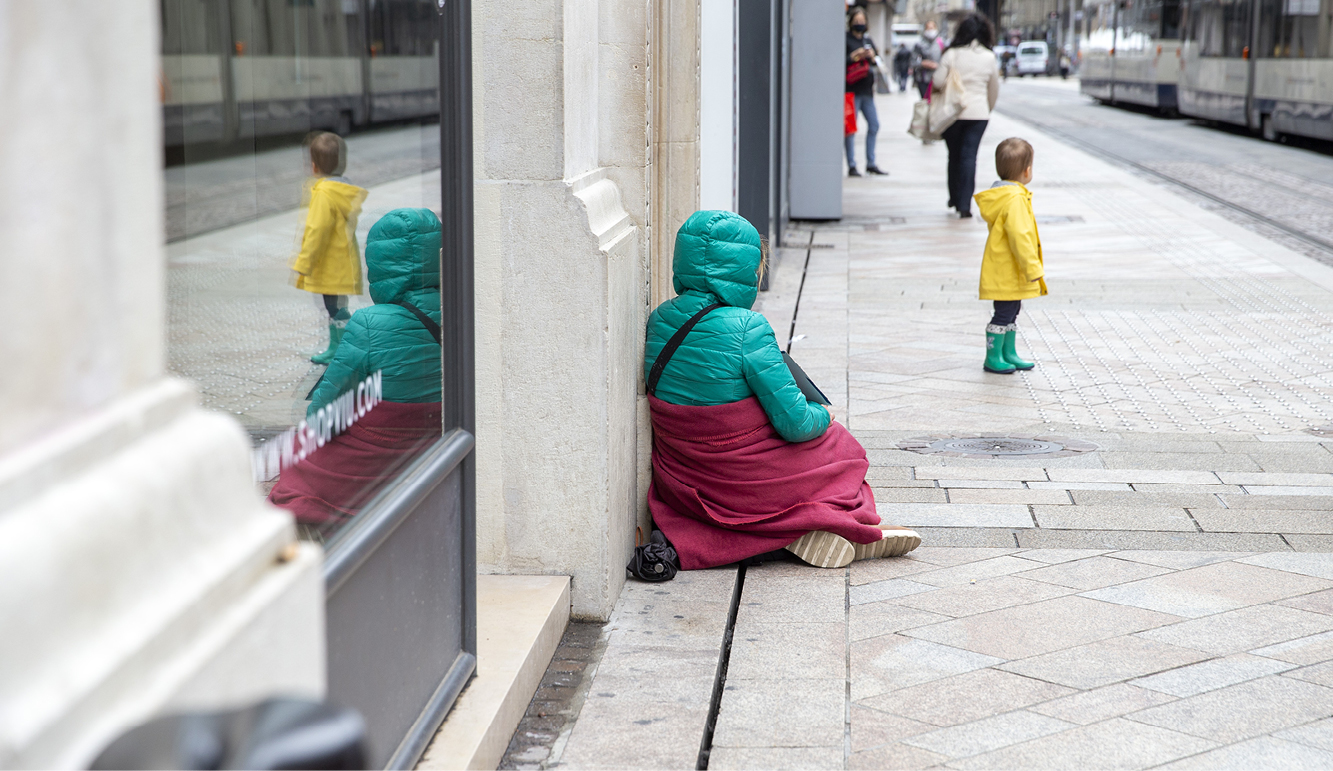
The police don’t look away when it comes to begging; they have a closer look.
Modern slavery in the free world
Geneva: one of the most expensive places in the world. In the middle of the city: beggars. They beg not because they want to, but because they have to. Human trafficking is a bitter reality in Switzerland.
In May 2021, the Cantonal Police of Geneva contacted fedpol’s Coordination Unit against the Trafficking of Persons and Smuggling of Migrants. The cantonal police provided a crucial piece of information that a Bulgarian network of criminals was forcing around 30 people to beg for money, which then went directly to the head of the group. The victims were mistreated if they refused. The stolen money was used in particular to build houses in Bulgaria.
The police interviewed two women beggars. Neither of them could say what city or even what country they were in.
After exchanges with the Geneva Public Prosecutor’s Office, the case raised suspicions of human trafficking
The cantonal police needed more information. fedpol sent requests to several European countries via Europol, asking for police information on the suspected victims and perpetrators.
The exchange of information with the Bulgarian authorities provided some insight: the victims and perpetrators were already known to the police. There were police records on several of them, both with the Bulgarian and other police forces, for begging and for property offences. The head of the group was also identified – he had committed violent crimes and other offences in the past.
The coordinated effort of several partners under the lead of the Geneva Public Prosecutor’s Office led to the arrest of five Bulgarian nationals in Geneva and Lausanne by the cantonal police authorities.
When the arrests were made, 30 beggars were found to have been involved. Whenever these people were not out on the streets, begging for money, they would sleep in a shelter.
This case shows how human trafficking transcends national borders. Cooperation is crucial in the fight against modern slavery. fedpol’s central office is in charge of managing cooperation with national and international partners, and ensures the exchange of information in human trafficking cases.
But that alone is not enough. Human trafficking happens behind closed doors. More is needed to identify and free the victims. Non-police actors such as emergency doctors, labour inspectors and migration authorities need to be made aware of the problem. That is something fedpol is actively working towards. By promoting exchanges between specialists and supporting projects and organisations, victims can be offered a helping hand.
The new National Action Plan (NAP) against Human Trafficking aims to ensure victims receive the support they need – throughout Switzerland. So that they can live in freedom.
United in the fight against human trafficking
The goals of the National Action Plan (NAP) against Human Trafficking are clear: prevention, awareness-raising and repression. Building on these three pillars, the NAP defines strategies and instruments to combat human trafficking in a coordinated, joint manner. Accordingly, the NAP promotes cooperation between police and non-police actors. These include non-governmental organisations and victim support organisations. The NAP also aims to intensify international cooperation in the fight against human trafficking. fedpol is currently working on a new, third NAP together with the Swiss Security Network (SSN).